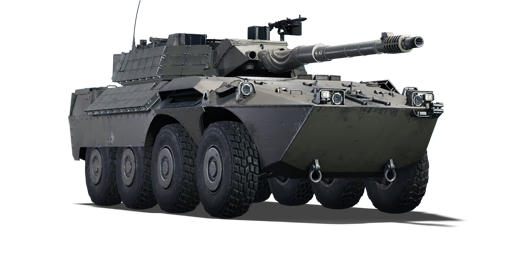Following the development of the Centauro I 105, the Italian army set up a competition for an ERA package for Centauro units placed in Somalia. British Royal Ordnance designed the ROMOR-A to be fitted for the Centauro units in Italian service. 10 units were sent to Somalia to be directly attached to the vehicles while another 10 were sent to Italy for further testing, the upgrade was a success mainly to the easiness of use of the ROMOR-A ERA package, being easy to attach in the field.
Introduced in Update 1.85 "Supersonic", the Centauro I 105 ROMOR is the same as the original Centauro I 105 but with the addition of ROMOR-A ERA. This means increased protection against HEAT and HE warheads, however it does not change the playstyle of the vehicle in almost any way. It is still very easy to destroy with APFSDS or APDS ammunition from regular tank guns or autocannons. Use this vehicle as a sniper, using its mobility and agility to your advantage, it has access to a powerful 105 mm cannon with good APFSDS ammunition as well as first generation thermal sight for the gunner for easier target acquisition.















